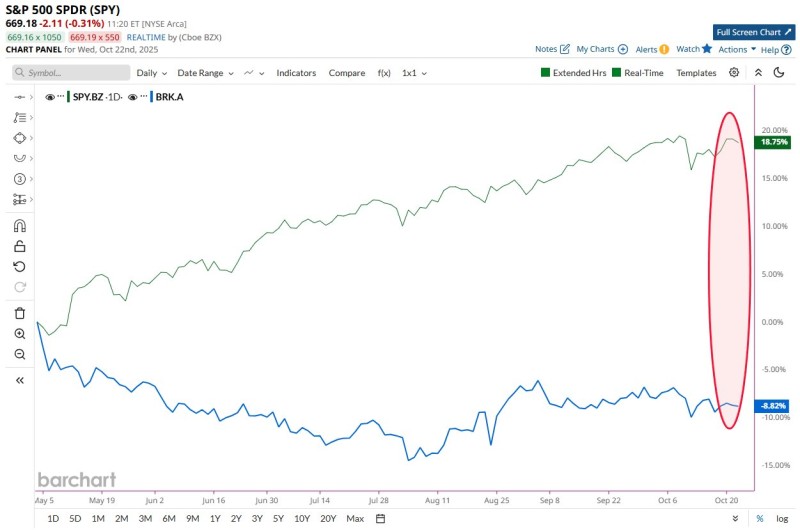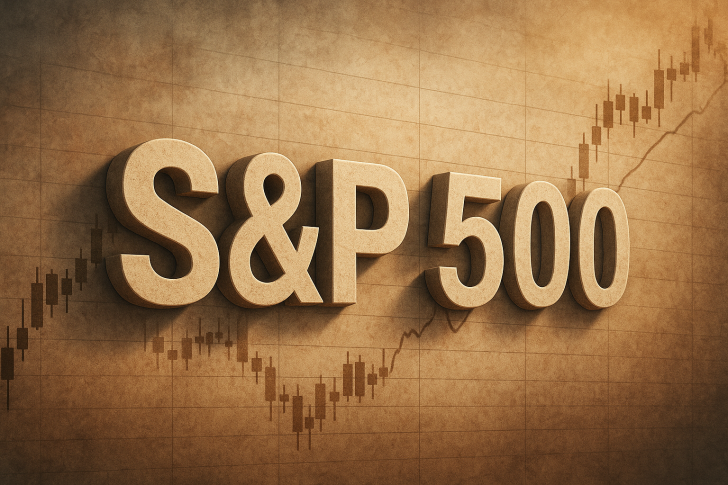A striking divergence has emerged in U.S. markets. Since Warren Buffett announced his retirement, Berkshire Hathaway has steadily fallen behind the S&P 500, widening the performance gap to nearly 28 percentage points. The once-steady value icon is now lagging as investors rotate toward growth-heavy sectors led by technology and artificial intelligence.
A Growing Divide Between Berkshire and the Market
A recent observation from Barchart trader highlights this underperformance, and the numbers make it unmistakable. The S&P 500 continues its steady climb, closing around +18.7%, while Berkshire drifts down to –8.8%. This gap has expanded sharply in recent weeks, revealing a fundamental shift in market sentiment.

The visual pattern reveals a clear story. From May to October 2025, the S&P 500 has advanced nearly 19%, driven by tech-sector gains and renewed optimism in AI-related stocks. Berkshire Hathaway, in contrast, has remained in a gradual decline, with lower highs forming a visible downtrend. The chart shows repeated attempts by Berkshire's price to stabilize around the –9% zone, suggesting a psychological support level that investors are watching closely.
The steepening gap following Buffett's retirement confirms a loss of market confidence in the short term, as capital flows increasingly favor growth and innovation over traditional value holdings. Unlike earlier pullbacks that saw rebounds, the recent weakness appears sustained, pointing to declining buying pressure and cautious institutional sentiment.
Why Berkshire Is Losing Ground
Several intertwined factors explain the underperformance:
- Leadership Transition Concerns: Buffett's departure has left markets uncertain about how his successors will allocate Berkshire's massive cash reserves and sustain the company's disciplined investment style.
- Portfolio Composition: With substantial exposure to financials, insurance, and consumer sectors, Berkshire has missed the upside momentum enjoyed by tech-heavy S&P leaders such as Nvidia and Microsoft.
- Market Rotation: As inflation pressures ease and investors look for growth, value-driven stocks like Berkshire are being temporarily sidelined in favor of innovation-oriented companies.
Can Berkshire Reclaim Its Market Edge?
While Berkshire Hathaway's fundamentals remain solid, the data reflects a confidence gap that won't close overnight. To regain traction, the firm's new leadership may need to demonstrate agility through buybacks, new strategic investments, or portfolio diversification that signals adaptation to a rapidly evolving economy.
For long-term shareholders, the message is mixed. Berkshire's stability remains unmatched, but in a bull market powered by innovation, patience may be tested. The next few quarters will reveal whether the company's famed conservative approach can still outperform in a post-Buffett world.
 Usman Salis
Usman Salis

 Usman Salis
Usman Salis


